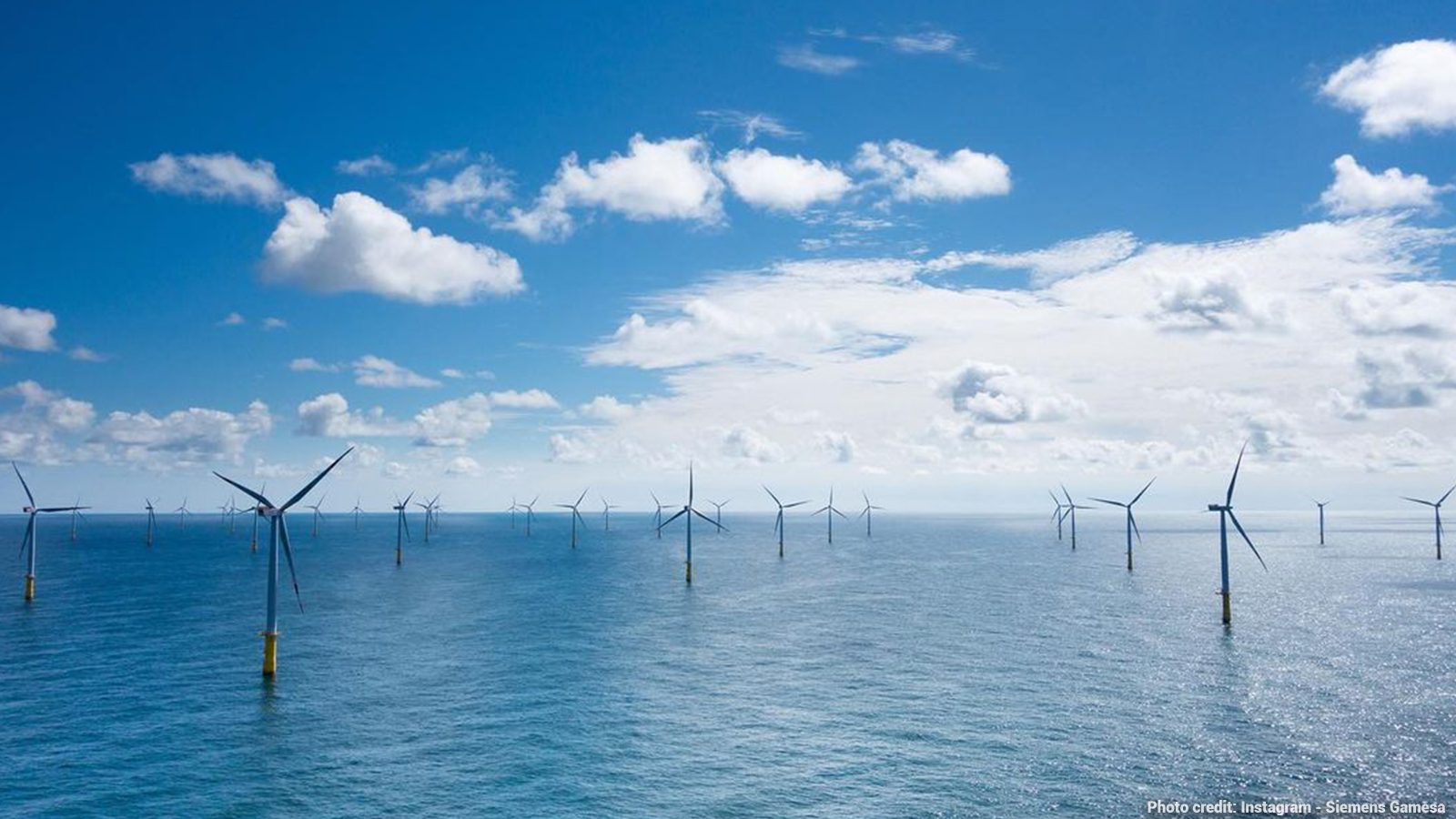Siemens Gamesa, a renewable energy company in Spain, recently installed the world’s first wind turbine with fully recyclable blades. The first commercial installation using the new technology took place at RWE’s Kaskasi offshore wind farm in Germany. Located 21 miles north of Heligoland in the North Sea, the project marks a turning point toward a sustainable future.
Marc Becker, CEO of the Siemens Gamesa Offshore Business Unit, said in a press release:
“We are proving that as the leaders of the offshore revolution, we are committed to making disruptive technology innovation commercially viable with the pace that the climate emergency demands. We’ve brought the Siemens Gamesa RecyclableBlade technology to market in only 10 months: from launch in September 2021 to installation at RWE’s Kaskasi project in July 2022.
“This is impressive and underlines the pace at which we all need to move to provide enough generating capacity to combat the global climate emergency. This milestone marks a significant contribution to Siemens Gamesa’s target of having fully recyclable turbines by 2040. With RecyclableBlade available for our customers, we can create a virtuous circular economy.”
The Demand for Wind Turbine Technology Requires Making Them Recyclable
As the demand for wind power keeps rising, waste from decommissioned turbines poses a problem for clean energy companies. Wind turbine blades can weigh over 12 tons and measure more than 150 feet, taking up vast areas of landfills. They’re made of a combination of fiberglass and epoxy resin to create a durable, lightweight structure. While these materials increase the turbine’s resiliency, they don’t break down in the environment.
So, Siemens Gamesa wanted to create a recyclable, eco-friendly blade to eliminate planetary harm. The company’s Recyclable Blade technology allows complete recovery of the blade’s materials at the end of its life cycle. They separate the resin, wood, fiberglass, and other raw materials using a mild acid solution. Next, the turbine components enter the circular economy, creating either new wind turbine blades or other products like flat-screen casings.
First Recyclable Blade Wind Turbines Installed in Germany’s North Sea
Sven Utermöhlen, CEO of Wind Offshore, RWE Renewables, said: “That we are testing in our offshore wind farm Kaskasi the world’s first recyclable wind turbine blades under operational conditions is a significant step in advancing the sustainability of wind turbines to the next level. The first turbine equipped with Siemens Gamesa’s RecyclableBlades is generating electricity.
“The expansion of renewable energies must be driven forward decisively. Faster offshore expansion is particularly important to simultaneously achieve climate targets and to create more energy sovereignty. We at RWE want to help make this happen and the commissioning of the first turbine of our Kaskasi offshore wind farm is a clear sign of this intent.”
Many turbines will come equipped with Siemens Gamesa’s handcrafted B81 recyclable blades measuring 265 feet long. The wind power project will consist of 38 SG 8.0-167 DD wind turbines, producing 342 MW of clean energy. The output from the wind farm could power 400,000 German households, similar to a city such as Frankfurt.
Becker added that the company’s recyclable blades have helped create jobs and economic value in several European countries. The company developed the RecyclableBlade technology in Aalborg, Denmark, while blade manufacturing took place in Hull, UK. In addition, Siemens Gamesa produced and installed nacelles for the turbines in Cuxhaven, Germany.
The company’s CEO said recycling the blade’s materials will increase the potential for secondary markets for the repurposed components. Also, local markets will benefit from the job creation provided by the additional raw materials and products.
The company also offers recyclable 354-foot long B108 blades used on the SG 14-222 DD offshore wind turbine. In addition, they produce the massive 377-foot long B115 blades for SG 14-236 DD turbines.
Wind Energy in High Demand Worldwide
According to the Global Wind Energy Council’s 2022 report, the wind industry continues to grow exceptionally.
- The global wind industry enjoyed its second-best year in 2021, with almost 94 GW of capacity added worldwide. 2020’s record growth surpassed it by only 1.8%.
- Europe, Latin America, Africa, and the Middle East experienced record onshore wind installations.
- The wind industry commissioned 21.1 GW of offshore wind capacity in 2021, three times more than in 2020. This achievement made 2021 the most successful year in history for offshore wind growth.
- China accounted for 80% of new offshore wind capacity worldwide in 2021, bringing its total offshore wind installations to 27.7 GW. This feat represents astronomical growth, as it took 30 years for Europe to install a similar level of offshore wind energy.
- Total global wind power capacity increased to 837 GW in 2021, eliminating over 1.2 billion tonnes of global CO2 annually. This equates to the yearly carbon emissions of the entire continent of South America.
- Since climate crisis worries reached an all-time high during the pandemic, many nations doubled down on their net zero commitments. The wind industry’s future looks promising as the world works urgently to transition to renewable energy. Experts estimate that 557 GW of new energy capacity will become available in the next five years. That equals over 110 GW of new installations every year until 2026.
- But, the report stated that installations must quadruple by 2030 to keep the world on track for a 1.5C future and net zero emissions by 2050.
Final Thoughts on New Recyclable Turbine Blades in Germany
Renewable energy company Siemens Gamesa recently completed the world’s first commercial installation of fully recyclable offshore wind turbine blades. Located at RWE’s Kaskasi offshore wind power project in Germany, it marks a monumental step toward a greener planet. Most decommissioned wind turbines end up in landfills and don’t break down in the environment.
So, the company wanted to create more eco-friendly wind turbine blades using recyclable materials. They figured out how to separate the blade’s raw materials using a mild acid solution. After the company recovers the components, they place them back into the economy as either new blades or other products. Currently, the company offers three different blade sizes for various wind turbines.



















